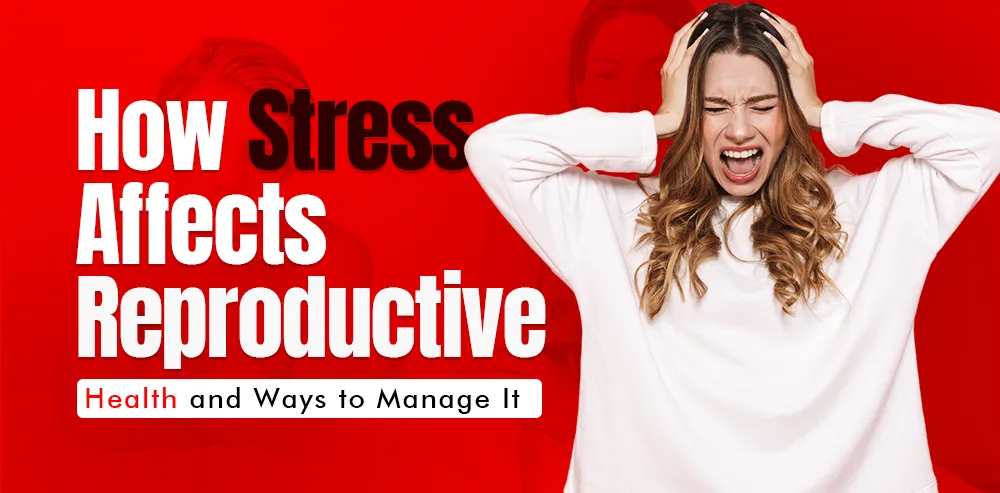How Stress Affects Reproductive Health And Ways To Manage It
Stress is indeed a part of life and cannot be evaded. However, if it stays chronic, then it causes negative impacts on various sides of your health, particularly your reproductive system. The following blog looks into the effects of stress on men and women's reproductive health, the science behind those effects, and practical approaches to manage your stress for better well-being.
The Impact of Stress on Reproductive Health
1.
Hormonal Imbalance
Stress causes the release of cortisol, the body's primary stress hormone. High levels of cortisol can disrupt the production of reproductive hormones such as estrogen, progesterone, and testosterone, causing irregular menstrual cycles in women and low sperm counts in men.
2. Decreased Fertility
For women: Chronic stress can suppress ovulation, making it more difficult to conceive.
For men: Stress has been linked to lower sperm count, poor sperm motility, and erectile dysfunction.
3. Sexual Desire
Stress can reduce sexual interest in both men and women. It affects mood and energy, which play an important role in holding things together.
4. Pregnancy Complications
Stress among pregnant women can lead to preterm delivery and low birth weight, hence the risks associated with this condition.
Ways to Manage Stress and Support Reproductive Health
1.Mindfulness and Relaxation Techniques
Meditation: Mindfulness can lower cortisol levels and regulate hormonal balance.
Deep Breathing: Easy breathing exercises can clear your mind and improve health as a whole.
2.Regular Exercise
Moderate exercise, such as yoga, swimming, or walking, helps to regulate stress hormones and improve mood. However, over-exercising will only stress your body more.
3.Balanced Nutrition
Consume foods that are rich in antioxidants, omega-3 fatty acids, and vitamins like B6, C, and E to help in the regulation of reproductive health.
Hydrate adequately and reduce processed foods, caffeine, and sugar.
4.Sleep Hygiene
Poor sleep intensifies stress and throws the production of hormones off. Target 7-9 hours of quality sleep at night.
5.Support Group
Talk to a close friend, family member, or therapist. Support groups on fertility or stress management may also be helpful.
6.Herbal Supplements
Adaptogenic herbs like ashwagandha and maca root can help the body manage stress and possibly support reproductive health.
7.Time Management
Learn how to prioritize tasks, delegate responsibilities, and take breaks to prevent burnout.
The Role of Professional Help
If stress is severely affecting your health, consult a healthcare provider. Fertility specialists and psychologists can help address underlying concerns and create a tailored plan to manage stress and improve reproductive health.
FAQs
Q1. Can stress alone cause infertility?
A: Stress alone might not cause infertility directly, but it will affect the hormonal balance and ovulation, thus making it hard to conceive.
Q2. How long does it take to reverse the effects of stress on reproduction?
A: Time scales do depend on the intensity of the stress, and how fast you act by managing stress.
Q3. Do they have medical interventions for the reproductive problems related to stress?
A: Yes, hormone therapy, counseling, and stress-reduction medication may also be part of the treatment, if necessary.
Conclusion
Stress greatly affects reproductive health, but the good news is that it can be managed effectively. You can reduce stress levels and support your reproductive well-being by incorporating mindfulness practices, balanced nutrition, exercise, and emotional support into your daily routine.
Taking small, consistent steps toward a stress-free life not only enhances your chances of conception but also contributes to better overall health and happiness.
.webp)

.webp)
.webp)

.webp)